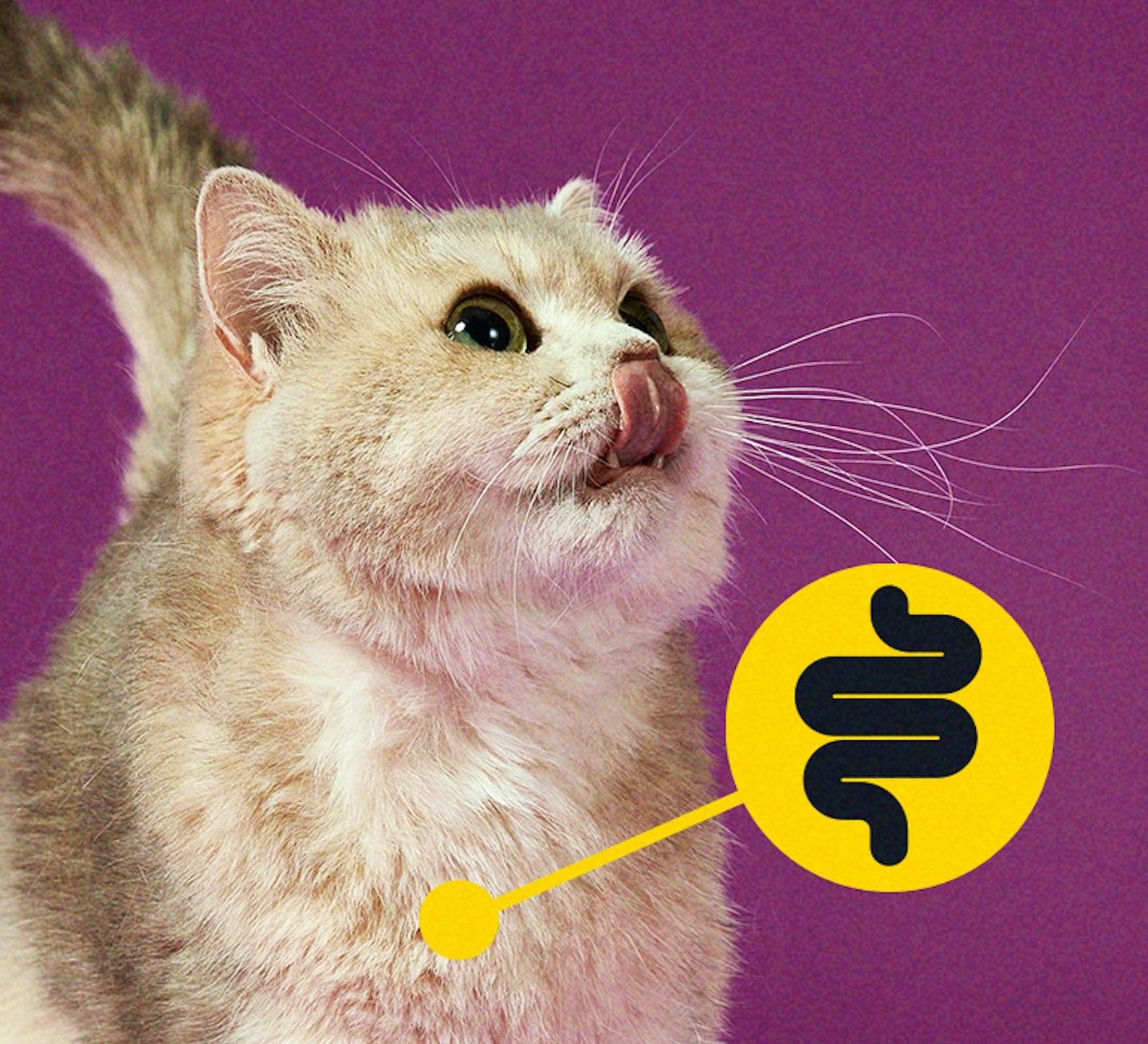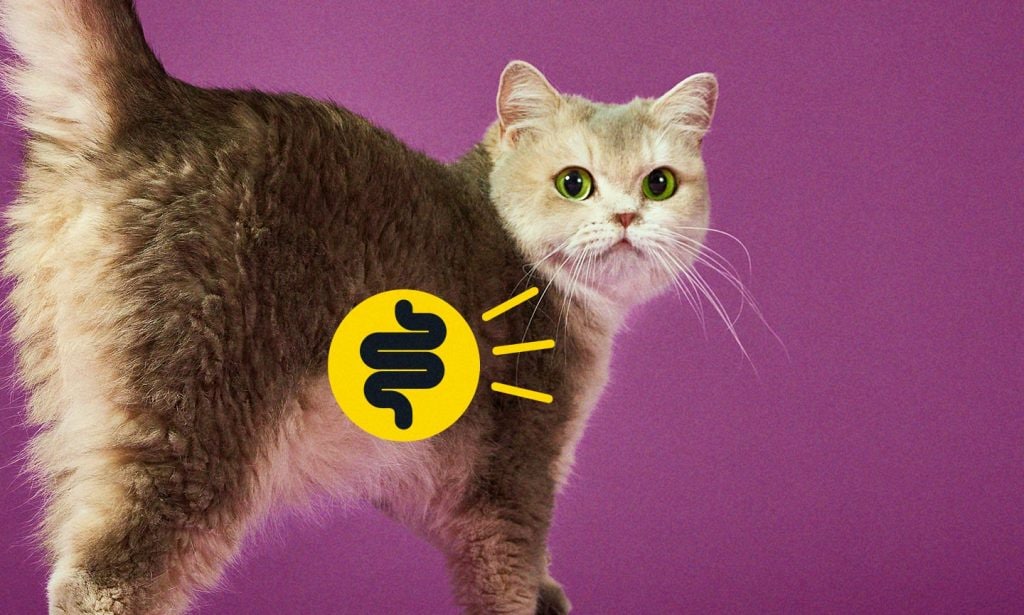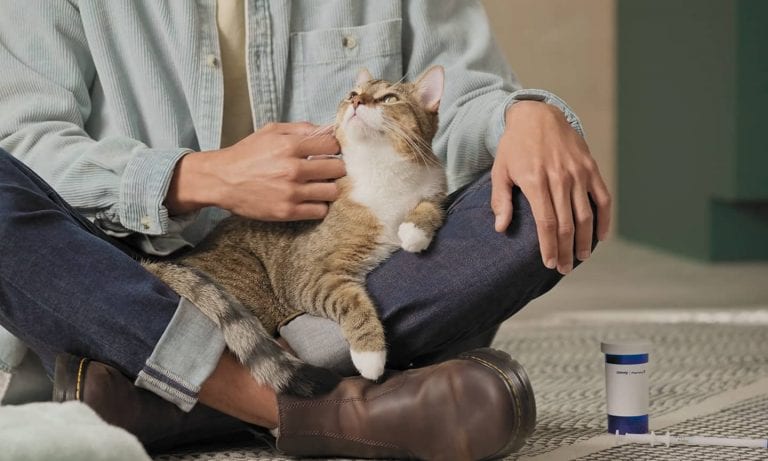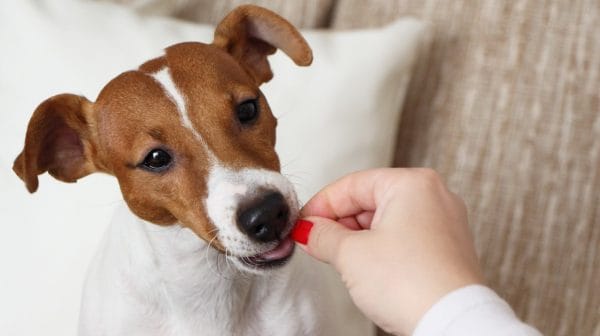In This Guide:
What Are Probiotics for Cats?
What Are the Benefits of Probiotics for Cats?

Cat probiotic supplements may offer the following benefits:
- Boosting good gut flora: Just like in humans, many cat illnesses originate in the gut. These include leaky gut syndrome and inflammatory bowel disease, or IBD.
- Relieving occasional constipation, diarrhea, and loose stools, and supporting urinary health: “Probiotics can outcompete ‘bad’ microorganisms that may play a role in diarrhea or other health problems,” Dr. Coates explains. “They can help support normal gastrointestinal function and the immune system, and even reduce anxiety.”
- Calming stress: Since the gut and the brain are connected by millions of nerves, an inflamed GI tract can increase stress in cats and lead to behavioral concerns.
- Reducing hairballs: Probiotics can help boost the overall health of your cat’s digestive system, in turn helping reduce hairballs.
- Improving immune health: Cat probiotics can boost a cat’s immune system and can help to rebalance the digestive tract after antibiotics, since antibiotics eliminate both good and bad microflora. Cat probiotics can help bolster essential good bacteria in the microbiome that provide digestive support.
- Alleviating seasonal allergies: “Pets with seasonal allergic conditions may benefit from probiotic supplementation,” Dr. Coates says.
Probiotics for kittens might also be helpful for our little friends, since kittens are born without gut bacteria and are more prone to occasional digestive upset and diarrhea.
What Are the Risks and Side Effects?
- Vomiting
- Diarrhea
- Flatulence
- Abdominal discomfort
What Kind of Probiotics Can I Give My Cat?
Cat probiotics come in different forms, including powder supplements, pills, and even treats infused with probiotics, like soft chews.
These products are made with probiotic strains of “good” bacteria, and each strain of bacteria can address different needs. A beneficial bacteria strain that can help ease stress in cats, for example, is Bifidobacterium longum, Dr. Coates says.
Other strains that can be helpful for a healthy gut and beyond include:
- Bifidobacterium lactis animalis
- Bifidobacterium bifidum
- Lactobacillus acidophilus
- Bacillus coagulans
- Enterococcus faecium
Vibeful™ Probiotic Gastrointestinal Support Powder Digestive Supplement, for example, includes lactobacillus acidophilus and enterococcus faecium, among many other ingredients, to support digestive system and gut health.

Cat probiotic supplements can be given in numerous ways.
- Probiotic powder, for example, can be mixed into cat food.
- A probiotic paste can also be added to a cat’s diet.
- Probiotics pills can be hidden in chewy pill pockets. (Or try these other tips for giving a cat a pill.)
When it comes to probiotics for kittens, you may want to give your kitten something easy to eat, such as a gel or probiotic chews, since their teeth are still very small at that age.
How Often Should I Give My Cat Probiotics?
Cat probiotic supplements can be a helpful addition to your cat’s diet and overall wellness plan. They can improve digestion, reduce stress, and boost the immune system. However, be sure to always ask your veterinarian first if probiotics are right for your cat and if so, which type to get.
This content was medically reviewed by Chewy vets.
More on Cat Diet and Nutrition:
Share:












